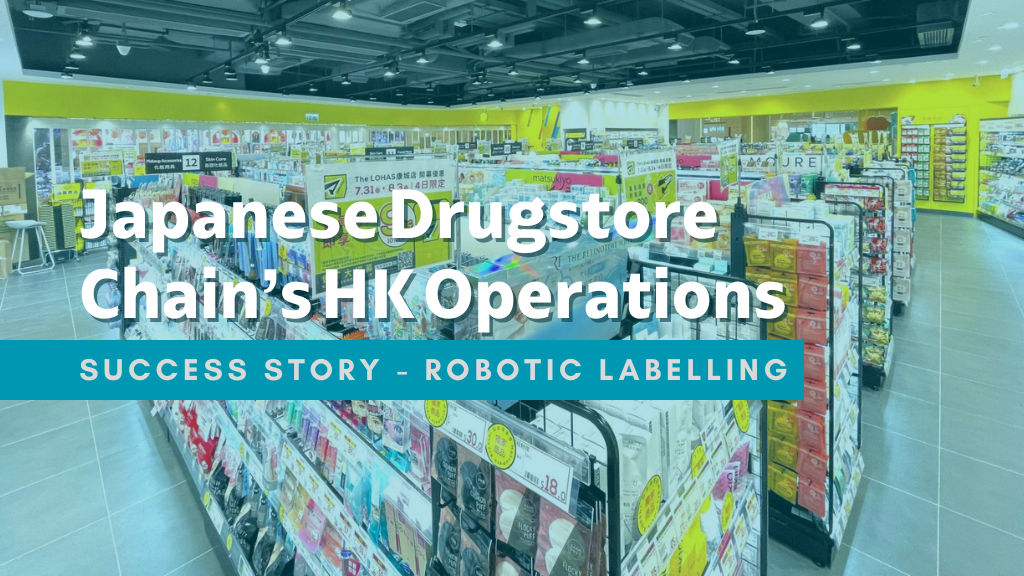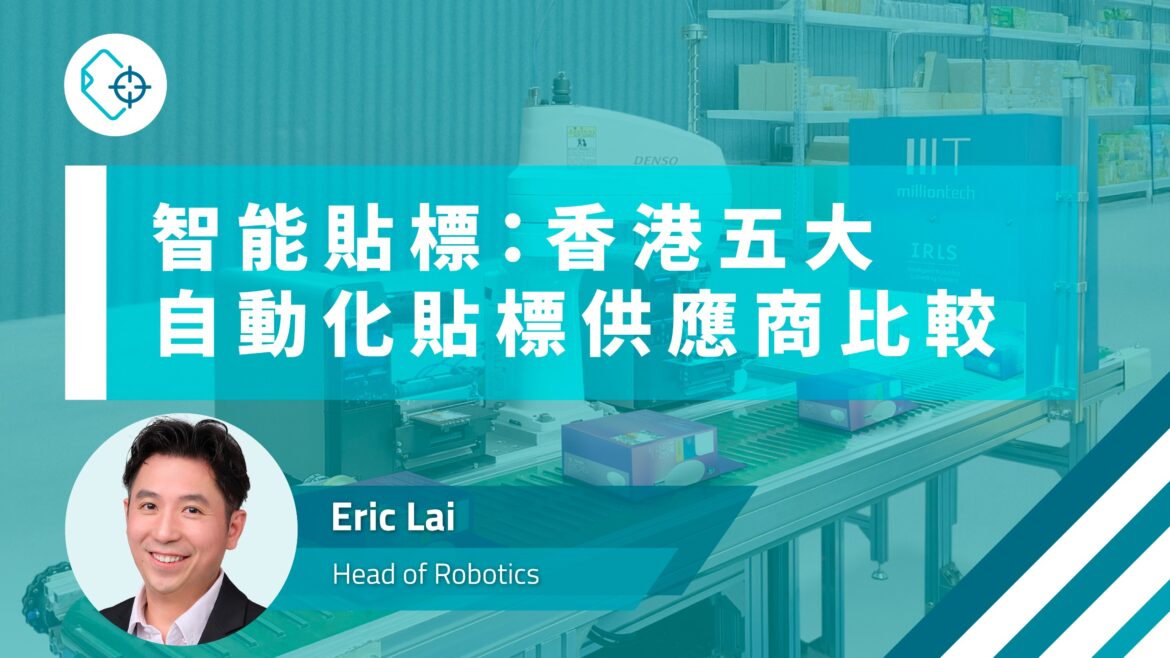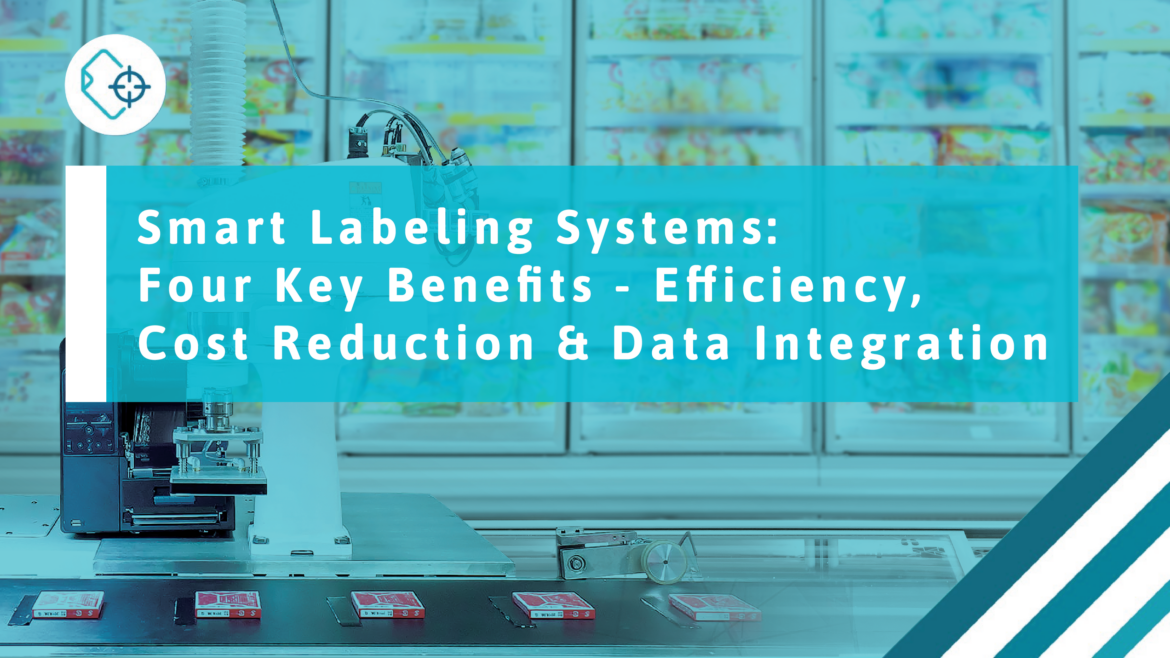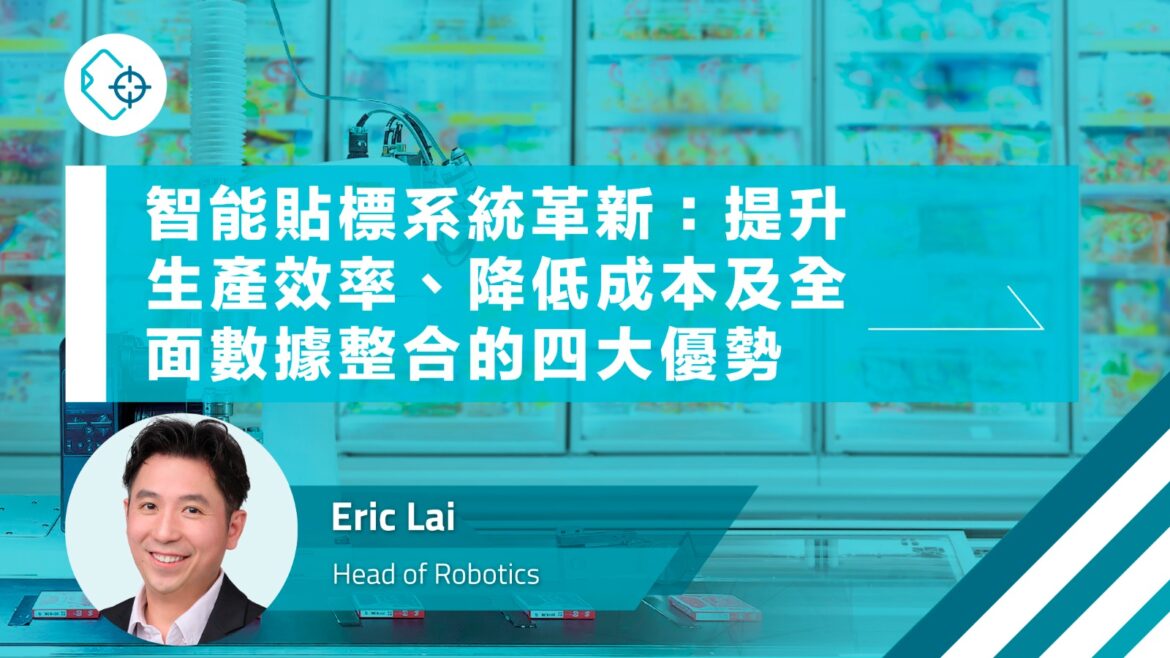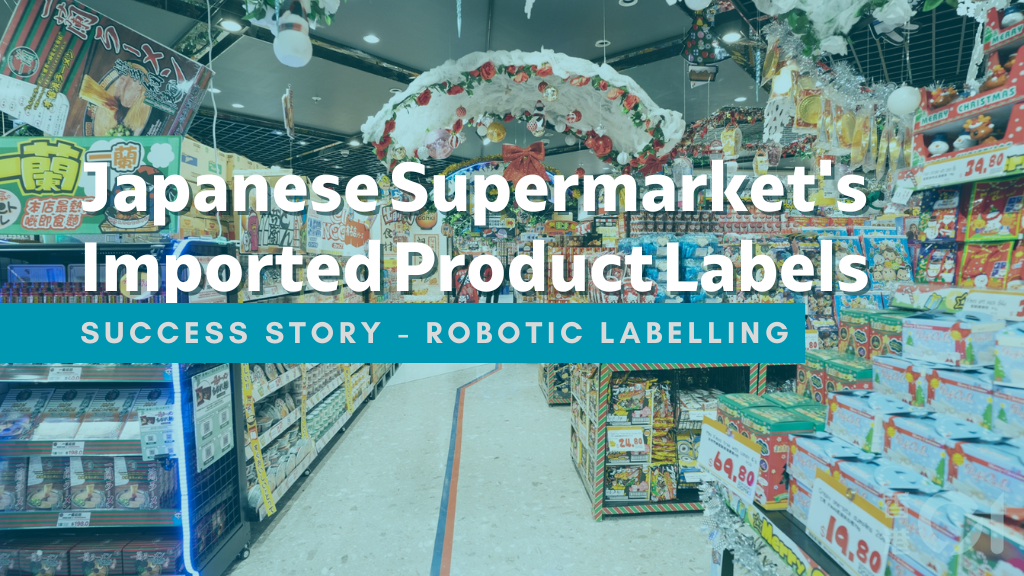Labelling Solutions
介乎合規同效率之間:香煙完稅標籤制度下的智能貼標思考
Monday, 22 December 2025
香煙完稅標籤制度要求在香港供應或銷售的香煙零售封包,必須在進入市場前已附有有效完稅標籤,以支援控煙政策及打擊私煙。這不僅改變稅務與執法環境,也令煙草供應鏈每個環節都要回應是否已貼標及資料是否可驗證這兩個問題。企業一方面需要嚴格符合法規及未來可能加重的罰則與稽查,另一方面仍要在有限人手、場地及系統條件下維持效率,令香煙完稅標籤制度下是否採用智能貼標或自動化成為必須認真評估的課題。
- Published in Label Technology
Success Story: Robotics Labelling System (12) for Japanese Drugstore Chain’s Hong Kong Operations
Tuesday, 18 November 2025
Our client is a prominent Japanese drugstore and beauty products supermarket chain operating 13 branches in Hong Kong. Previously, they relied on manual labor to apply Hong Kong regulatory compliance labels on imported Japanese beauty and pharmaceutical products. The time-consuming manual labeling process created bottlenecks in their warehouse operations, delaying product availability in retail stores and impacting sales performance.
- Published in Success Story - Robotics
Smart Labelling Transformation: The New Operational Mindset Behind Saving HK$1,500 a Day
Monday, 10 November 2025
Hong Kong companies have long relied on manual labour for labelling processes—a system plagued by complexity, errors, and high costs that limits production efficiency and increases management difficulties. In response, more local enterprises are embracing digitalization, and by adopting Million Tech’s robotic labelling system, they are able to immediately reduce manpower, increase labelling speed and accuracy, and lay a solid foundation for long-term competitiveness.
- Published in Label Technology
「貼標智能化轉型:日慳$1500背後的營運新思維」
Friday, 03 October 2025
香港企業貼標工序長期依賴人手,工序繁瑣、出錯多且成本高昂,令生產效率受限、管理難度增加。愈來愈多本地企業積極數碼化,選用Million Tech智能貼標系統,即時節省人力,提高速度與準確率,為長遠競爭力鋪路。
- Published in Label Technology
Smart Labelling: Comparison of the Top 5 Automated Labelling Suppliers in Hong Kong
Tuesday, 16 September 2025
Industries such as food, pharmaceuticals, logistics, and consumer goods in Hong Kong are demanding faster labelling speed, higher accuracy, and greater production transparency. Smart labelling systems are revolutionizing production processes, delivering 2–3 times faster efficiency compared with manual methods, saving up to 70% of manpower, and achieving speeds of 100–150 pieces per minute per system. This not only reduces operating costs but also allows companies to reallocate staff to higher-value tasks, driving digital transformation and enhancing competitiveness.
- Published in Label Technology
智能貼標:香港五大自動化貼標供應商比較
Thursday, 04 September 2025
香港食品、醫藥、物流、日用品等行業對於貼標速度、精度及生產透明度的要求持續提升。智能貼標系統全面革新行業工序,能比傳統人手方式提速2-3倍,節省高達70%人手,單一系統最快每分鐘可處理100-150件,有效為企業降低成本、分配人力至更高效益崗位,推動數碼轉型及強化競爭力。
- Published in Label Technology
Robotic Labeling Systems: Four Key Benefits – Efficiency, Cost Reduction & Data Integration
Friday, 08 August 2025
In the food processing and logistics industries, traditional manual labeling operations face challenges of labor intensity and low efficiency. Additionally, labeling errors due to operational mistakes lead to rework (reprocessing due to defects in initial production), causing significant disruption to production processes. According to existing data, intelligent labeling systems can save up to 70% of manual labor while tripling production efficiency, making it an ideal technical solution to address these pain points. Below is a detailed analysis of the specific advantages of intelligent labeling systems in labeling dry goods, refrigerated foods, and frozen foods from four perspectives.
- Published in Label Technology
智能貼標系統革新:提升生產效率、降低成本及全面數據整合的四大優勢
Tuesday, 29 July 2025
在食品加工及物流產業中,傳統手動貼標作業一方面面臨勞動密集、效率低下的問題,另一方面,因操作失誤導致標籤偏差,進而需要翻工(即因初次生產時出現缺陷而需重新加工),給生產流程帶來不小的麻煩。根據現有數據,智能貼標系統不但可以節省高達70%的人手,同時提升3倍的生產效率,已成為解決以上痛點的理想技術選擇。以下從四個層面,詳細解析智能貼標系統在乾貨、低溫冷藏食品及急凍食品貼標過程中的具體優勢。
- Published in Label Technology
Success Story: Robotics Labelling System (11) for Japanese Supermarket’s Imported Products Information Labels
Thursday, 24 July 2025
Our client is a prominent Japanese supermarket chain. Previously, they employed 12 staff members dedicated to manually applying Hong Kong compliance labels on imported goods. Due to the time-consuming manual labeling process, products experienced significant delays in distribution to their retail stores.
- Published in Success Story - Robotics


